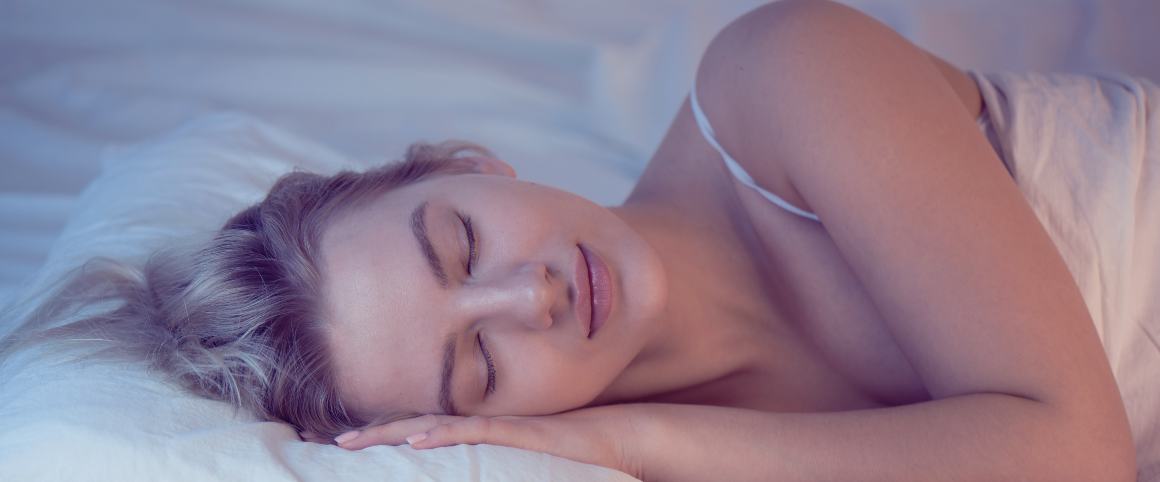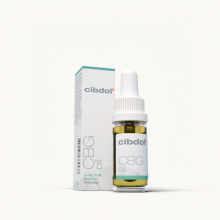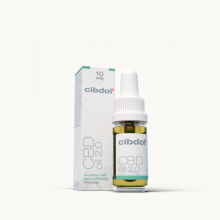What is better for sleep CBG or CBD?
Published:
Between work stress, screens, and busy schedules, many people struggle to wind down and get adequate sleep. Research shows both CBD and CBG - two compounds from the cannabis plant - may help improve different aspects of sleep. But when it comes to CBD vs. CBG, which one is better for sleep specifically?
Contents:
This article compares the evidence on CBD and CBG for sleep and provides guidance on which may be better suited for certain sleep issues.

How CBD May Improve Sleep
CBD (cannabidiol) is a prominent cannabinoid found in cannabis and hemp that has gained attention for its therapeutic uses. Research indicates CBD may enhance sleep in the following ways:
- Interacts with endocannabinoid receptors involved in regulating circadian rhythms and sleep-wake cycles.
- Reduces anxiety and rumination that can delay sleep onset.
- Provides overall relaxation and sedation to make falling asleep easier.
- Lessens pain and discomfort that can disrupt sleep.
- Reduces symptoms of conditions like PTSD that impair sleep.
- Boosts time spent in deeper, restorative sleep stages.
However, evidence is mixed on CBD’s effects on different sleep stages. Nonetheless, CBD’s anxiety-lowering and soothing properties appear beneficial for sleep issues stemming from restlessness, pain, and anxiety.
How CBG May Improve Sleep
Meanwhile, CBG (cannabigerol) is the precursor to CBD in hemp and cannabis plants. Research on using CBG for sleep is more limited but suggests it may help by:
- Activating CB1 receptors involved in controlling sleep-wake cycles.
- Increasing time spent in crucial deep, slow-wave sleep.
- Improving difficulty falling asleep and sleep latency.
- Helping regulate circadian rhythm for better wakefulness during the day.
So while CBD may work better for anxiety-related insomnia, CBG’s effects on sleep cycles and deep sleep stages show particular promise for issues like sleep maintenance and daytime fatigue.
CBD vs. CBG for Insomnia
When comparing CBD vs CBG specifically for insomnia and difficulty falling asleep, here are some key differences:
- CBD tends to have more sedative effects thanks to interactions with receptors like adenosine and serotonin. It produces greater overall feelings of calmness and relaxation.
- CBG may have more targeted effects on processes controlling sleep initiation, helping patients nod off faster.
- CBD takes 1-2 hours to take effect. It has a longer duration lasting 4-6 hours. CBG may work more rapidly within 30-60 minutes but effects may not last as long.
- CBD has more research backing its efficacy for insomnia, while only limited studies have examined CBG for this use so far.
So while both may help in some cases, CBD’s relaxing qualities and longer duration likely make it better for insomnia overall. Those with anxiety-driven sleep onset issues may find it particularly helpful.
CBD vs CBG for Sleep Maintenance
Regarding improving sleep maintenance and preventing middle of the night or early morning awakenings, key differences include:
- CBG appears more effective than CBD at increasing time spent in crucial deep, slow wave sleep based on limited research.
- This deep sleep enhancement may strengthen sleep maintenance and translate to fewer interruptions in sleep.
- CBD provides longer lasting effects that can help prevent awakenings in the early morning hours when it is wearing off.
- Both may help relieve underlying pain or anxiety leading to poor sleep maintenance.
So while both show promise for maintaining sleep, CBG may have a slight edge for increasing deep, restorative sleep stages that strengthen continuity. However, more studies directly comparing effects on sleep architecture are needed.
CBD vs CBG for Daytime Alertness
Finally, for improving daytime energy and wakefulness:
- CBG may have a circadian rhythm regulating effect to help establish a healthy sleep-wake cycle.
- In a rodent study, CBG increased wakefulness during lights-on periods while normalizing activity levels during lights-off.
- CBG also boosted time in rejuvenating deep sleep, which translates to feeling well-rested during the day.
- While CBD can help patients fall asleep easier, some report it causes residual drowsiness the next day.
For enhancing daytime alertness and energy, CBG appears better than CBD based on research so far. The deep sleep-enhancing and wake-promoting effects give CBG an advantage for addressing issues like daytime fatigue, sleepiness and fogginess.
Which is Better for Sleep: Final Key Considerations
When weighing CBD vs. CBG for sleep in your personal situation, keep these final considerations in mind:
- Both CBD and CBG are generally considered safe, non-intoxicating, and not habit-forming.
- However, those with bipolar disorder and schizophrenia may need to avoid or limit THC-containing versions as it could worsen symptoms in those conditions.
- As with any cannabis-derived product, starting low and gradually increasing dosage while monitoring effects on sleep is important.
- Neither completely treats underlying medical conditions causing sleep disorders. Rather, they alleviate symptoms and can be used as complementary therapy.
- The optimal dosage, timing, and form (oil, capsule, gummy, etc) depends on the individual. Expect some trial and error.
- Full spectrum products harnessing the entourage effect may provide the greatest benefits versus purified isolates.
So in summary, while both offer pros and cons, CBD seems optimal for anxiety-driven insomnia while CBG appears better for deep sleep enhancement and regulation of sleep-wake cycles. Using both may provide the most comprehensive benefits for overall sleep quality improvement.
Fact Section
Here are some important facts about CBD, CBG and using cannabinoids for improved sleep:
- Up to 70 million Americans suffer from a sleep disorder, according to CDC estimates.
- Leading causes include anxiety, chronic pain, sleep apnea, restless leg syndrome, medications and other health conditions.
- Both CBD and CBG influence sleep and circadian rhythms via interaction with endocannabinoid system receptors and other mechanisms.
- CBD tends to improve anxiety-related insomnia, overall sleep amounts and perceived sleep quality.
- CBG appears more effective for sleep initiation, time spent in deep sleep stages and regulation of sleep-wake cycles.
- For insomnia, CBD may work better thanks to its relaxing qualities and longer duration.
- CBG seems to have greater effects on deep sleep and next-day alertness based on limited research.
- Neither completely treats underlying causes of sleep disorders but can provide symptomatic relief in adjunct with other therapies.
- Combining CBD and CBG may offer more comprehensive sleep quality benefits compared to either alone.
What is better for sleep CBG or CBD? Conclusion
In summary, both CBD and CBG show promise for improving different aspects of sleep based on their mechanisms and early research. CBD seems to work better for anxiety-driven insomnia thanks to its calming qualities and longer duration. CBG appears more effective for initiating sleep quickly, increasing deep restorative sleep stages and regulating normal sleep-wake cycling based on limited evidence thus far.
This suggests CBG may hold advantages for strengthening sleep maintenance and addressing excessive daytime fatigue. Combining both CBD and CBG may provide the most well-rounded benefits for overall sleep quality improvement. However, more comparative human studies on CBD versus CBG are still needed. Those struggling with sleep issues should first consult their doctor to explore underlying causes and safest options. For some individuals, a supervised trial of CBD, CBG or both may provide complementary relief when combined with proper sleep hygiene practices and any other needed therapies.
Resources used to write this article
For information on how CBD impacts sleep:
- Shannon, S., Lewis, N., Lee, H., & Hughes, S. (2019). Cannabidiol in Anxiety and Sleep: A Large Case Series. The Permanente journal, 23, 18–041. https://doi.org/10.7812/TPP/18-041
- Chagas, M. H., Zuardi, A. W., Tumas, V., Pena-Pereira, M. A., Sobreira, E. T., Bergamaschi, M. M., dos Santos, A. C., Teixeira, A. L., Hallak, J. E., & Crippa, J. A. (2014). Effects of cannabidiol in the treatment of patients with Parkinson's disease: an exploratory double-blind trial. Journal of psychopharmacology (Oxford, England), 28(11), 1088–1098. https://doi.org/10.1177/0269881114550355
For information on how CBG impacts sleep:
- Nicholson, A. N., Turner, C., Stone, B. M., & Robson, P. J. (2004). Effect of Delta-9-tetrahydrocannabinol and cannabidiol on nocturnal sleep and early-morning behavior in young adults. Journal of clinical psychopharmacology, 24(3), 305-313. https://doi.org/10.1097/01.jcp.0000125688.57674.8d
- Babson, K. A., Sottile, J., & Morabito, D. (2017). Cannabis, Cannabinoids, and Sleep: a Review of the Literature. Current psychiatry reports, 19(4), 23. https://doi.org/10.1007/s11920-017-0775-9
For direct comparison between CBD and CBG:
- Qin, N. (2021). Therapeutic Potential of the Cannabinoid CB2 Receptor. Medicines, 8(1), 10. https://doi.org/10.3390/medicines8010010
- Lee, H. S. (2022). Cannabinoids for the Treatment of Sleep Disorders. Chest, 161(1), 161–169. https://doi.org/10.1016/j.chest.2021.06.057

















